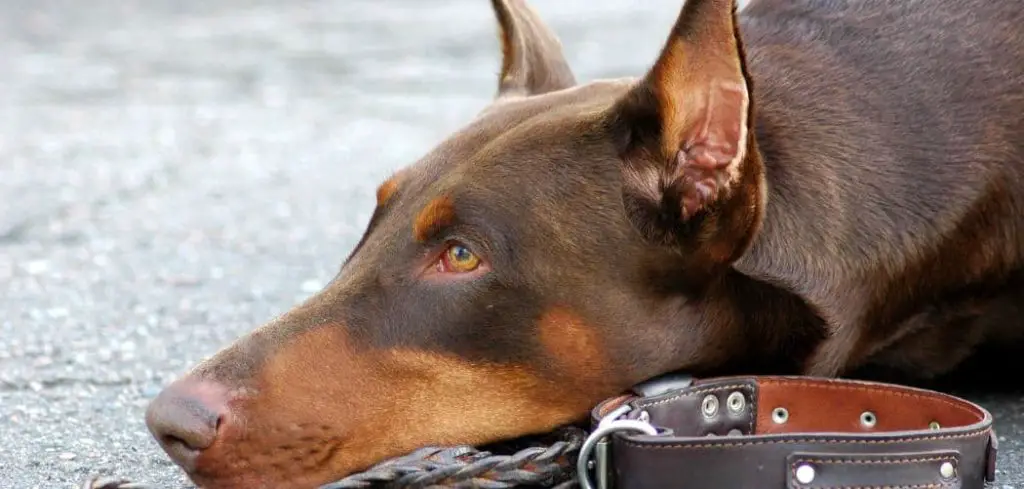When your dog is both panting and vomiting, it’s a sign that something more serious than an upset stomach may be happening. While panting can occur with mild stress or heat, vomiting paired with it often indicates illness, pain, or a condition that needs prompt attention.
We outline the common causes of dog panting and vomit, what you can do at home, and when to seek veterinary help.
Dog Panting and Vomit — Why It Happens
Panting alongside vomiting is usually a sign of physical distress, often caused by gastrointestinal issues, toxins, or pain. The combination reflects a systemic problem that the body is urgently trying to deal with—whether it’s overheating, nausea, or something more serious.

Common Causes of Dog Panting and Vomit
Gastrointestinal Upset or Inflammation
Vomiting is a primary symptom of digestive upset, which may be caused by dietary indiscretion, sudden food changes, or infections like gastroenteritis.
Panting can accompany this due to abdominal discomfort or anxiety from nausea.
Look for signs like diarrhea, lethargy, loss of appetite, or stomach gurgling.
Mild cases may resolve with rest and a bland diet, but persistent vomiting warrants a vet visit.
Toxin Ingestion
If your dog has gotten into something toxic—chocolate, xylitol, grapes, medications—they may vomit and pant excessively as the body tries to expel the toxin.
Other symptoms can include drooling, shaking, collapse, or seizures.
Time is critical—bring any packaging or information with you to the vet.
Do not attempt to induce vomiting unless directed by a professional.
Bloat (Gastric Dilatation and Volvulus)
This is a medical emergency where the stomach fills with gas and may twist.
Early signs include retching (non-productive vomiting), extreme panting, pacing, a swollen abdomen, and distress.
Bloat progresses rapidly and can be fatal without immediate surgical treatment.
Large, deep-chested breeds are especially at risk—call your vet or an emergency clinic without delay.
Read more: Dog Panting and Shaking (Common causes)
Heatstroke
Overheating causes both vomiting and intense panting as the dog tries to regulate their temperature.
It can escalate quickly, leading to collapse, confusion, bloody diarrhea, or seizures.
Heatstroke is common in dogs left in hot environments or those who overexert themselves in warm weather.
Cool your dog gradually and seek veterinary care right away.
Pancreatitis
Pancreatitis is inflammation of the pancreas and a common cause of vomiting and abdominal pain.
Dogs may pant, vomit repeatedly, show a hunched posture, and be reluctant to eat or move.
This condition requires veterinary care with pain management, IV fluids, and dietary changes.
Fatty foods, certain medications, or underlying illnesses can trigger an episode.
Kidney or Liver Disease
When the kidneys or liver aren’t functioning properly, toxins build up in the body, leading to nausea, vomiting, and distress.
Panting may result from discomfort or toxin-induced effects on the brain and body.
Other signs include weight loss, pale gums, bad breath, or increased thirst and urination.
Blood tests and imaging help confirm the diagnosis, and treatment varies depending on the cause and severity.
What to Do If Your Dog Is Panting and Vomiting
Withhold food for several hours to allow the stomach to settle, but continue offering small amounts of water.
Do not give human medications or attempt home remedies without speaking to your vet.
Monitor the vomit’s contents—note if there’s blood, bile, or foreign objects.
Keep your dog in a cool, quiet area and limit movement until they’ve calmed down.
If vomiting continues for more than a few hours or is paired with other symptoms, call your vet.
When to Call or Visit Your Vet
Contact a veterinarian urgently if your dog:
Vomits more than once in a 12-hour period
Pants heavily without cooling down
Has a bloated or painful abdomen
Shows signs of weakness, shaking, or collapse
Has ingested a potential toxin
Vomiting and panting together can indicate life-threatening conditions that require prompt medical care.
Read more: Dog Panting and Drooling (Could it be nausea or something else?)
Key Takeaway
When your dog is panting and vomiting, don’t assume it’s something minor—it could be a sign of a serious health issue.
Monitor symptoms closely, avoid risky home remedies, and contact your veterinarian for a clear diagnosis and timely treatment.
Your dog’s well-being may depend on how quickly you act.
